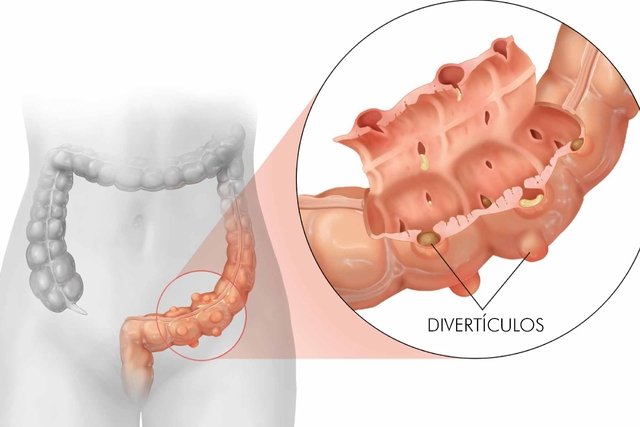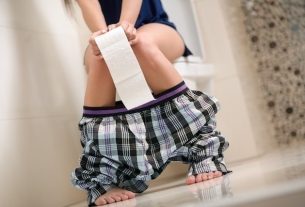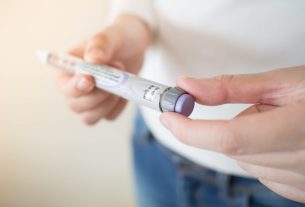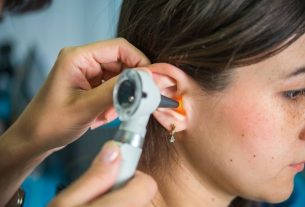To live well with diverticulitis, it is important to ensure the proper functioning of the intestine, keeping it regulated, in order to prevent the diverticula, which are bags that form in the intestine, from becoming inflamed, giving rise to acute diverticulitis, which, in addition to being painful, can have serious complications, which may require surgical treatment.
Therefore, it is important to pay attention to your diet, giving preference to foods rich in fiber, and to practice physical activity regularly.

Some tips that help keep the intestine regulated, preventing diverticulitis are:
1. Eat fiber every day
Foods rich in fiber, such as apples, pears, mangoes, papayas, carrots, broccoli or spinach, for example, help keep the intestines regulated and prevent diverticula from becoming inflamed. See a more complete list of this type of food.
This happens because fiber cannot be digested and, therefore, stimulates the intestine to function better. This way, feces are eliminated more quickly, avoiding the accumulation of bacteria that can lead to the emergence of acute diverticulitis.
2. Give preference to raw foods
This tip works in a similar way to foods rich in fiber, as eating raw foods prevents the loss of fiber during cooking. This way, even if you eat foods with a low amount of fiber, they are maintained and ingested, helping with bowel function. Discover other tips on how to eat.
The amount of fiber that a person with intestinal diverticula should consume to avoid diverticulitis is around 25 to 35 g of fiber per day. Find out how to include this amount of fiber in your diet, daily,
3. Drink 2 liters of water a day
Adequate water consumption during the day helps keep feces well hydrated, making it easier to pass through the intestine. When this does not happen, and the feces end up becoming very dry, they can end up accumulating inside the intestinal diverticula. If this happens, bacteria can develop more easily, causing inflammation of the intestine and the appearance of symptoms of acute diverticulitis.
However, the amount of water needed is different for each person, depending on their weight and level of physical activity, for example. Check out how you can calculate the amount of water you need.
4. Do regular exercise
Practicing some physical activity, around 2 to 3 times a week, such as 30-minute walks, swimming or running, for example, are essential to maintain regular bowel movements, ensuring their best functioning.
5. Avoid using laxatives
The use of laxatives should be avoided, especially during attacks of acute diverticulitis, as this type of medication causes the intestine to function excessively, increasing the movements of the organ wall. Therefore, if there is pain and inflammation caused by diverticulitis, laxatives may worsen symptoms.
Learn more about how to treat and prevent symptoms of diverticulitis.

Sign up for our newsletter and stay up to date with exclusive news
that can transform your routine!
Warning: Undefined array key "title" in /home/storelat/public_html/wp-content/plugins/link-whisper-premium/templates/frontend/related-posts.php on line 12
Warning: Undefined array key "title_tag" in /home/storelat/public_html/wp-content/plugins/link-whisper-premium/templates/frontend/related-posts.php on line 13





